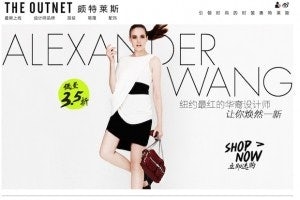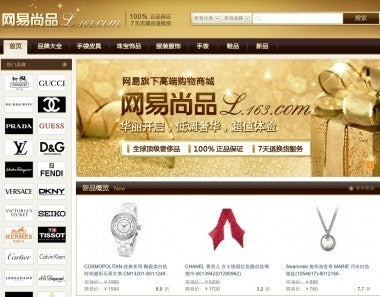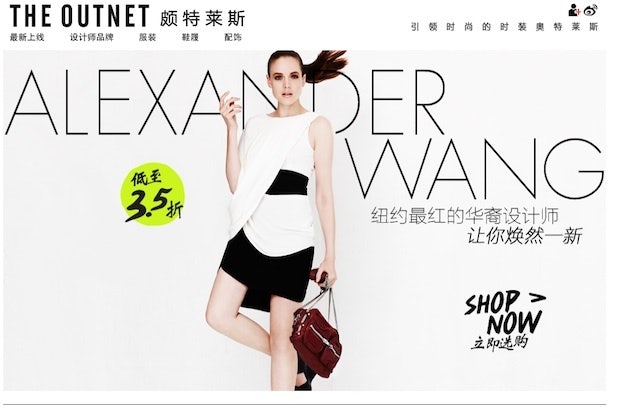Neiman Marcus Recently Announced US$28 Million Investment In Glamour Sales Holding#

Despite booming demand and strong sales, the shakeout in China's luxury e-commerce market that Jing Daily predicted we'd see at some point in 2012 is already starting to become apparent. Due to a raft of poor fundamentals, including underdeveloped supply chains, inconsistent inventory, inadequate authentication, payment difficulties and simple overcrowding, so far this year a number of luxury e-commerce sites -- which saw record investment last year -- have already shuttered their operations. In early January, NetEase Premier shut down abruptly after less than one year in business, likely due in part to its many customer perks and deep discounting on brands like Louis Vuitton and Gucci. As we commented on NetEase Premier's demise at the time:
In 2012, we expect a serious industry shakeout that should leave a handful of well-capitalized sites with ample inventory and ability to discount, as well as the perks expected by Chinese buyers: free shipping, fast checkout, easy returns, and authenticity guarantees to name a few.
As China Daily writes this week, with a number of upstart domestic high-end e-commerce sites hitting the wall in the first quarter of 2012, it looks like the shakeout is in full force:
It is rumored that Shangpin.com, a member-only online luxury retailer, has also reduced its payroll since January. A former employee of Shangpin.com, who refused to be identified, said she left the company because of its decreasing turnover.
The industry's tough times started at the end of 2011.
Last December, employees of Wooha.com posted a letter on the website's homepage demanding their back pay. Wooha.com was one of China's pioneering luxury online retailers and had planned to be listed by 2013. The website's business ground to a virtual halt after the wage arrears affair.
Perhaps more than any single problem with management or supply chain, the "race to the bottom" pricing strategy that domestic Chinese e-commerce sites have adopted has likely been their biggest mistake. As Feng Po, an analyst with China Venture, told China Daily, Chinese luxury e-commerce sites have struggled to turn a profit simply because, in Chinese consumers' minds, anything sold online must be discounted. Said Feng, the price wars we've seen newly established Chinese luxury online retailers engage in since last year mean their margins are simply unsustainable, and their start-up nature means they can't compete with international e-commerce sites that have more consistent supply and better relationships with luxury brands.
This lack of a strong connection to major brands, and the resulting opposition they face from many labels, continues to plague domestic Chinese luxury e-commerce sites. As China Daily adds,
Swarovski (Shanghai) Trading Co Ltd...has accused 360buy.com, a major online retailer, for selling Swarovski products without authority, according to media reports.
The online retailer, which is one of the largest e-commerce players in China and entered the luxury business in 2011, said its turnover of luxury products exceeded 500 million yuan (US$79.4 million) in 2011 and forecasted the number could arrive at 1.5 billion yuan in 2012.
As many as 38 luxury brands, including LV, Prada and Hermes, reportedly confirmed in March that they never gave any Chinese online retailer the authority to sell their products.
Because it is difficult to cooperate directly with luxury brands, obtaining goods has become the biggest problem for luxury online retailers.
Due to the poor supply of real luxury goods, some fake luxury products have appeared online, whose sellers do not explain where they obtained them.

Though we should continue to see the Chinese luxury e-commerce market grow -- it reached 10.7 billion yuan in 2011 and is expected to surpass 23 billion yuan next year -- the multitude of virtually unknown upstarts we saw crop up last year should all but vanish in 2012, leaving a handful of well-capitalized market leaders. Unfortunately for domestic e-commerce leaders like Zoshow, Shangpin, VIPStore and others, this year will see the entrance of even more foreign competitors like the Neiman Marcus Group -- which recently announced a US$28 million investment in the privately held e-commerce company Glamour Sales Holding. Unlike most of its rivals in the China market, which continue to compete on price and perks, the new Neiman Marcus site will offer a curated mix of
full-priced#
luxury items and boutique brands that are harder to find at brick-and-mortar stores in China.
While the market is also becoming crowded with international brands and e-commerce sites, ranging from Yoox-hosted stores for brands like Marni and DSQUARED2 to thecorner.com.cn and Net-A-Porter's new TheOutnet.cn for the China market, strategies like authenticity guarantees, more lucrative full-priced items or collections, and online exclusives and designers and brands not readily found on Chinese sites could mean 2012 will be the year in which foreign retailers establish a strong profitability and market share lead over their Chinese competitors.

